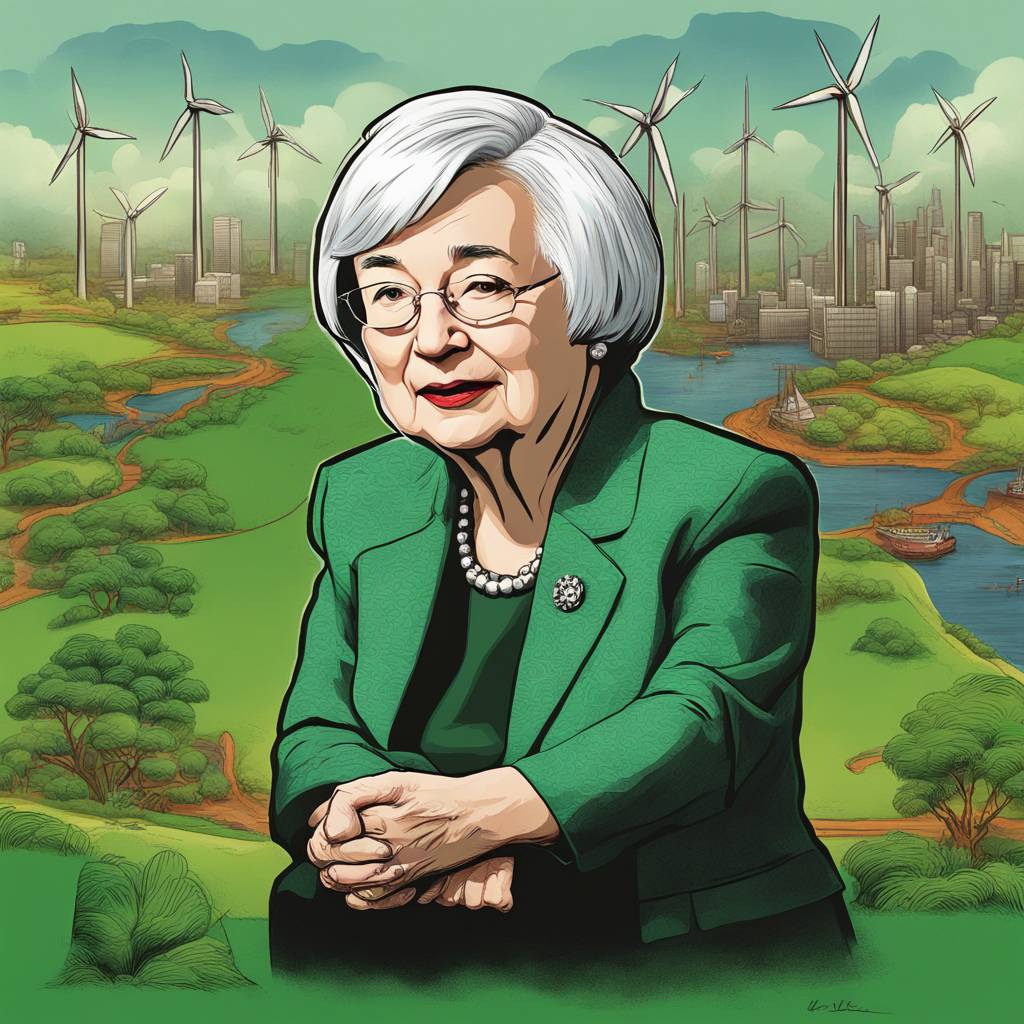The Biden administration is expressing growing concerns about the impact of heavily subsidized green technology exports from China on global markets. As the United States invests in renewable energy and electric vehicle technology, China is also heavily investing in its factory sector. President Biden and Chinese leader Xi Jinping have attempted to stabilize their relationship, but tensions over trade policies and investment restrictions persist. Treasury Secretary Janet Yellen plans to address the issue of overcapacity and China’s export strategy during upcoming economic talks in Beijing.
Yellen will warn Chinese officials about China’s overcapacity in industries such as solar, electric vehicles, and lithium-ion batteries, which she believes is destabilizing global supply chains. She will raise concerns about how China’s export strategy distorts global prices and production patterns, harming American and global firms and workers. Yellen is expected to urge her Chinese counterparts to make necessary changes to address the issue, as the Biden administration continues to invest in green energy technologies to revive struggling companies like Suniva.
China has invested heavily in its solar sector, putting more than $130 billion into the industry last year. The country has also voiced frustration over America’s manufacturing investments and electric vehicle subsidy policies, claiming they are discriminatory. China filed a complaint with the World Trade Organization, challenging the U.S. policy of denying tax credits to buyers of electric vehicles containing components from certain countries. Yellen plans to make overcapacity a key issue during her upcoming trip to China, emphasizing the importance of American firms and workers being able to compete on a level playing field.
The Biden administration’s Inflation Reduction Act of 2022 included nearly $400 billion in tax credits and subsidies for low-emission forms of energy production. This has led to significant private sector investments in clean power, totaling over $200 billion. Suniva, a solar panel company that closed its plant in 2017 due to cheap imports flooding the market, plans to reopen its factory in Georgia this spring thanks to the administration’s green energy investments. Yellen’s visit to Suniva serves as an example of how these investments are helping to revive struggling companies and industries in the U.S.
Yellen’s upcoming trip to China will mark her second visit to the country as Treasury Secretary. She is expected to visit Guangzhou and Beijing in early April, although the Treasury Department has not confirmed her travel plans. Yellen will press her Chinese counterparts to address issues of overcapacity and unfair trade practices during the economic talks in Beijing. The ongoing tensions between the U.S. and China over trade policies, investment restrictions, and cyberespionage continue to strain the relationship between the world’s two largest economies.
Overall, the Biden administration is committed to addressing the challenges posed by China’s overcapacity in green technology exports and ensuring that American firms and workers have the opportunity to compete on a level playing field. By investing in renewable energy and electric vehicle technologies, the U.S. aims to revive struggling industries and create a more sustainable and competitive global marketplace. Yellen’s upcoming discussions with Chinese officials will be crucial in addressing these issues and working towards a more balanced and mutually beneficial trade relationship between the two countries.








